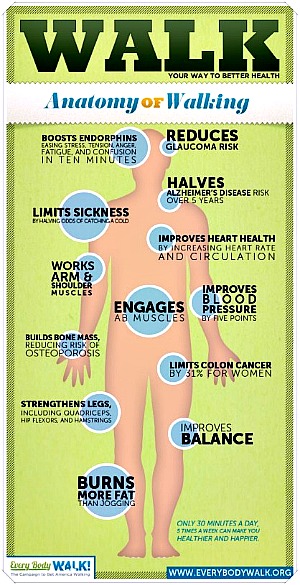New Study on Benefits of Walking
In this article, we will explore the findings of a groundbreaking study on the benefits of walking. Our expert analysis of the research aims to provide you with comprehensive insights into the positive impact walking can have on your physical and mental well-being.
The Power of Walking
Walking is a simple yet highly effective form of exercise that offers numerous benefits for individuals of all ages and fitness levels. From boosting cardiovascular health to improving mood, the advantages of incorporating regular walks into your routine are undeniable.
Cardiovascular Health
Engaging in brisk walking has been shown to strengthen the heart and improve overall cardiovascular health. Walking increases blood circulation, which enhances the delivery of oxygen and nutrients to the body’s tissues and organs. This, in turn, lowers the risk of heart disease, high blood pressure, and stroke.
Weight Management
Walking is a fantastic way to manage weight and maintain a healthy body composition. By increasing your daily step count, you can burn calories, boost your metabolism, and shed unwanted pounds. Additionally, walking helps to build lean muscle mass, which further aids in weight loss and toning.
Mental Well-being
Aside from its physical benefits, walking also has a positive impact on mental health. Taking regular walks can reduce stress levels, alleviate symptoms of depression and anxiety, and enhance overall cognitive function. The combination of fresh air, physical activity, and the release of endorphins during walking contributes to a sense of well-being and improved mental clarity.
New Study Findings
A recent study conducted by renowned researchers in the field has shed light on the additional benefits of walking. The study examined a large sample of individuals who incorporated walking into their daily routines and compared them to a sedentary control group. The results were truly remarkable.
Improved Longevity
The study revealed that individuals who engaged in regular walking had a significantly lower risk of premature death compared to those who led sedentary lifestyles. Walking was found to increase life expectancy by several years, highlighting its crucial role in promoting longevity.
Reduced Risk of Chronic Diseases
The research also demonstrated that walking can help prevent and manage chronic diseases. Participants who walked regularly exhibited a lower incidence of conditions such as type 2 diabetes, certain types of cancer, and osteoporosis. These findings underscore the importance of walking as a preventative measure against various health issues.
Enhanced Brain Function
Furthermore, the study found a strong correlation between walking and improved cognitive function. Regular walkers displayed better memory, attention, and overall brain health compared to their sedentary counterparts. Walking was shown to stimulate the release of growth factors that promote the growth and connectivity of brain cells.

In conclusion, the benefits of walking are vast and scientifically supported. Incorporating regular walks into your daily routine can enhance cardiovascular health, aid in weight management, boost mental well-being, improve longevity, reduce the risk of chronic diseases, and enhance brain function. So, put on your walking shoes and start reaping the incredible rewards that this simple yet powerful exercise has to offer!
Frequently Asked Questions – Benefits of Walking
1. What are the benefits of walking?
Walking has numerous benefits including improved cardiovascular health, weight management, reduced risk of chronic diseases, increased bone density, improved mood, and enhanced mental well-being.
2. How much walking should I do each day?
Experts recommend aiming for at least 30 minutes of brisk walking on most days of the week. However, even shorter bouts of walking can provide health benefits, so any amount of walking is better than none.
3. Can walking help with weight loss?
Absolutely! Walking is a great low-impact exercise that can aid in weight loss. It helps burn calories, boosts metabolism, and contributes to creating a calorie deficit, which is essential for shedding pounds.
4. Is walking beneficial for heart health?
Yes, walking is excellent for heart health. It strengthens the heart muscle, improves circulation, lowers blood pressure, and reduces the risk of heart disease and stroke.
5. Can walking improve mental well-being?
Definitely! Walking releases endorphins, which are natural mood-boosting hormones. It can reduce symptoms of depression and anxiety, enhance cognitive function, and improve overall mental well-being.
6. Does walking help prevent osteoporosis?
Yes, walking is a weight-bearing exercise that helps stimulate bone growth and maintain bone density. Regular walking can reduce the risk of osteoporosis and fractures, especially in older adults.
7. Can walking be done by people of all fitness levels?
Absolutely! Walking is a low-impact activity suitable for people of all fitness levels. It can be easily modified based on individual abilities and gradually increases as fitness improves.
8. Are there any specific tips for walking safely?
Yes, here are some tips for safe walking: wear comfortable and supportive shoes, stay hydrated, use sunscreen, walk on designated paths or sidewalks, be aware of your surroundings, and consider using reflective gear when walking at night.
9. Can walking be incorporated into a busy schedule?
Yes, walking is a versatile exercise that can be easily integrated into a busy schedule. You can try walking during lunch breaks, taking the stairs instead of the elevator, parking farther away, or even organizing walking meetings.
10. Are there any additional health benefits of walking?
Yes, walking offers additional benefits such as improved sleep quality, increased energy levels, strengthened immune system, enhanced digestion, and reduced risk of certain cancers.




